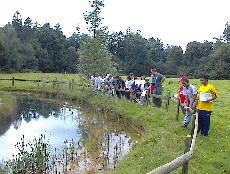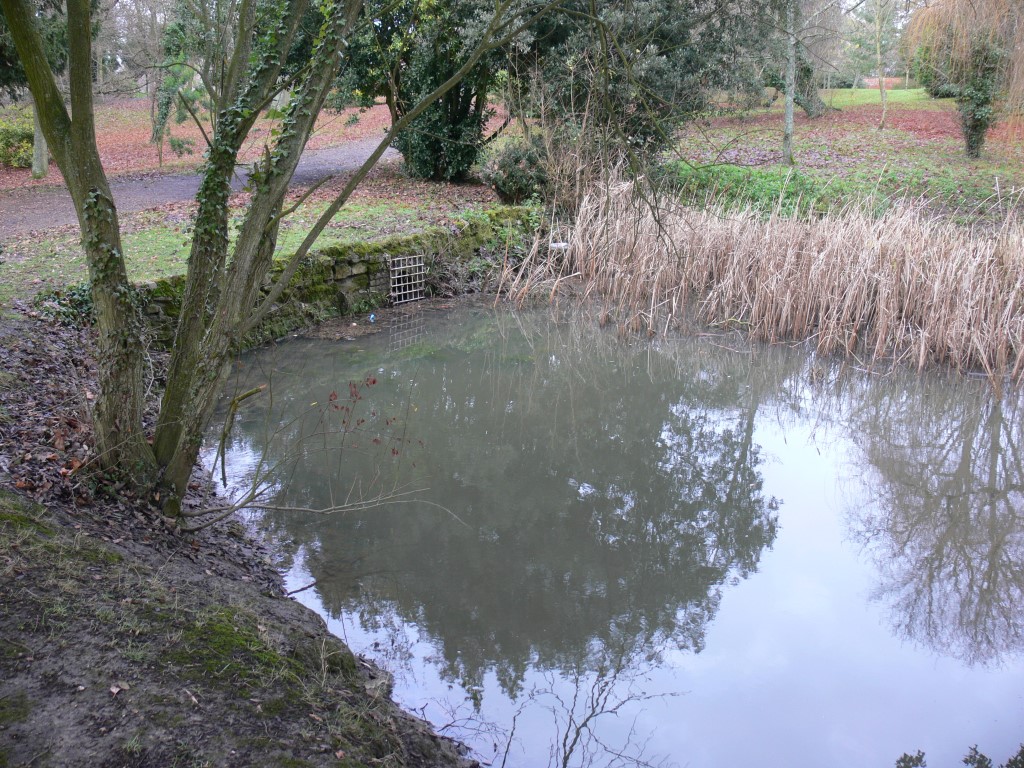Do you have a fundamental right to fall in a pond?
- Complaining about the Mainland - 17th August, 2024
- New island designation – is it just greenwash? - 26th April, 2024
- Police and Crime Commissioners – a solution or a problem? - 21st April, 2024
Remember this old chestnut? What a lot of trouble it causes, and what a lot of ineffective but expensive fencing and signage is provided by local authorities to little effect other than to appease insurers or fearful senior officers.
The issue here is that putting up signs and fences or even life-preservation equipment may not be actually to save lives but to satisfy those who want to ‘see something done’. And they are expensive to install and maintain. So do we always have to put fences and signs around open water in a public place. No, we do not. And here is why.
The Ranger recently read this story:
The parents of a Flintshire toddler who drowned at a holiday park hope his death will prompt the government to introduce tighter controls on ponds.

This is, of course, a tragic tale. However, the Ranger supports the coroner’s conclusion in this sad case:
It is healthy and natural for youngsters to show an interest in water, and [I do not] back calls from safety campaigners to fill in ponds. I can’t say that I recommend that all ponds should be filled up, because they provide so much pleasure to people and to children. I can only say that ponds can be dangerous places and people should be aware of that.
The Ranger is aware of a most illuminating judgement of the House of Lords in 2003 on this topic, which those of us who look after public water bodies might find interesting. This case is not the same as the Flintshire one because it concerns an adult, not a child. But both have the similar conclusions. This case concerns Mr Tomlinson, who sued Congleton Borough Council when he jumped into a lake in their country park and broke his neck. Mr Tomlinson lost his case. The resulting judgement strongly supports the view that some hazards are, in themselves obvious and that a landowner is not always obliged to protect everyone from everything. This is a principle which it is sometimes necessary to remind people of when they begin campaigns for more signs, fences, barriers, insurance, and so on.
The judgement contains many interesting and even a few entertaining parts, such as a comparison with the island of the Sirens, which concludes that “…the beach, give or take a fringe of human bones, was an ordinary Mediterranean beach. If Odysseus had gone ashore and accidentally drowned himself having a swim, Penelope would have had no action against the Sirens for luring him there with their songs.”. The judgement is highly relevant to all land managers, in fact mentioning rangers specifically at several points. It also refers to a host of other cases, some unlikely, such as the case of Miss Bessie Stone, who “was innocently standing on the pavement outside her garden gate at 10 Beckenham Road, Cheetham when she was struck by a ball hit for 6 out of the Cheetham Cricket Club ground”, and some which include situations which we are often presented with. Here are two short extracts:
“It will be extremely rare for an occupier of land to be under a duty to prevent people from taking risks which are inherent in the activities they freely choose to undertake upon the land. If people want to climb mountains, go hang gliding or swim or dive in ponds or lakes, that is their affair.”
“…it is not, and should never be, the policy of the law to require the protection of the foolhardy or reckless few to deprive, or interfere with, the enjoyment by the remainder of society of the liberties and amenities to which they are rightly entitled… In truth, the arguments for the claimant … attack the liberty of the individual to engage in dangerous, but otherwise harmless, pastimes at his own risk and the liberty of citizens as a whole fully to enjoy the variety and quality of the landscape of this country.”
(My emphasis) The Ranger wonders, does this judgement contain a fundamental principle which should be put on the list for our own Constitution – if it is ever drawn up? It would be wonderful if so.
To read the whole judgement, see here or search on the full citation below:
Judgments – Tomlinson (FC) (Original Respondent and Cross-appellant) v. Congleton Borough Council and others (Original Appellants and Cross-respondents)



Good to know that judges can display more common-sense than our legislators. Attempting to make the world risk-free has the unintended (although fairly obvious) consequence of introducing children to the ‘real world’ rather late, so they are less likely to be able to deal sensibly with the hazards that they will inevitably encounter. Fall out of a low tree when you’re small and you may get a bruise or two, and some useful experience. Fall twenty feet when you’re bigger and you may not survive…
Same comments could be made about sleeping policemen and other such traffic control systems which only encorage people to step out into the road without looking etc etc
While my heart goes out to Matthew’s family, I have to agree with you.
Filling in ponds is a ridiculous idea, and one even the Marsdens’ don’t agree with. Unfortunately, the world isn’t a safe place, and in reality children face far greater dangers every day of their lives.